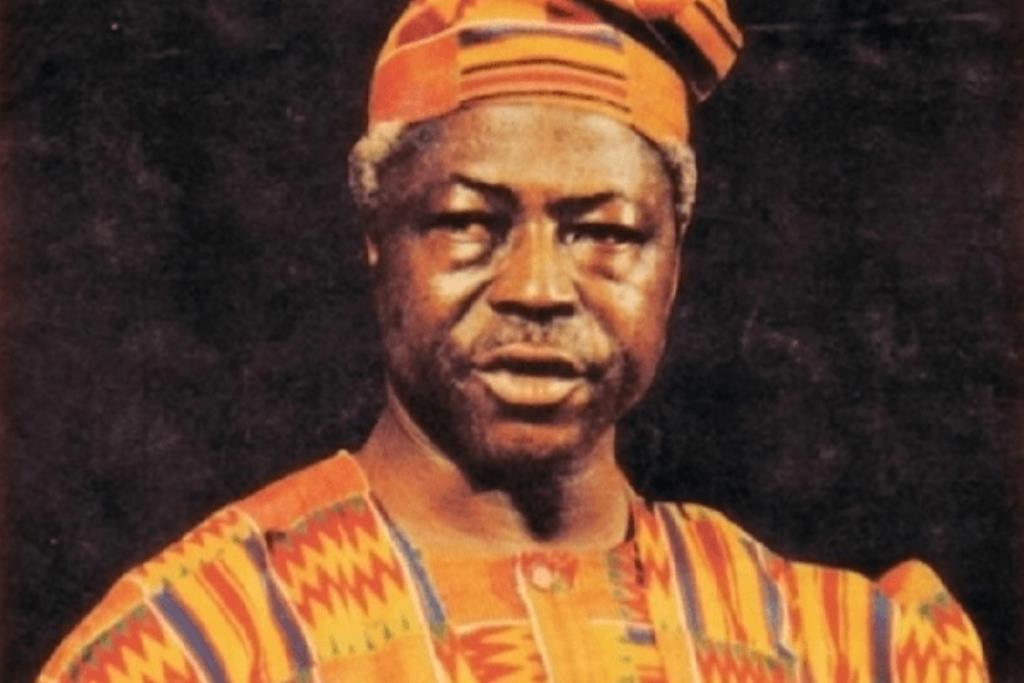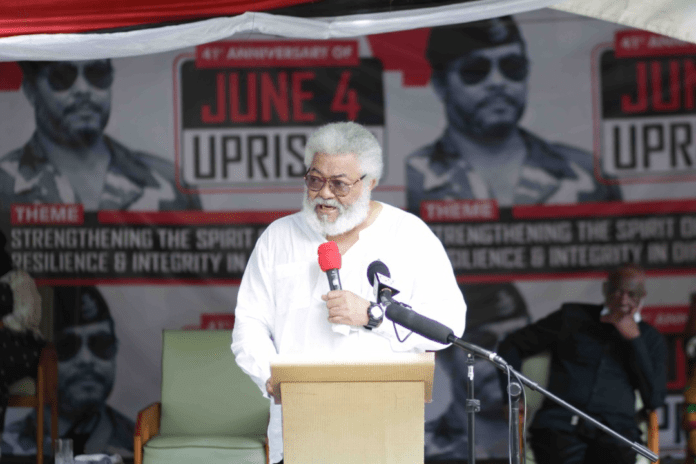The Attorney General’s Office is set to support the NDC’s celebration of December 31, using private funds.
Documents filed on behalf of the office at the Supreme Court signed by Chief State Attorney, Grace M-Ewoal is asking that the case filed by Ghanaian lawyer based in the US, Prof Stephen Asare, should be dismissed.
Historical facts giving rise to case
Prof Asare wants Ghana’s largest opposition party to be barred from commemorating December 31, the day in 1981 that the constitutionally-elected government of Dr Hilla Limann was ousted in a coup led by Jerry John Rawlings.
Mr Rawlings became Chairman of the Provisional National Defence Council (PNDC) that governed the country till 1993 when Ghana returned to constitutional rule with the NDC winning power.
READ ALSO
Prof Asare’s case
Prof. Asare argues that the commemoration of the events is inconsistent with the letter and spirit of the 1992 constitution. He relies heavily on the case of the New Patriotic Party v Attorney-General [1993-1994] 2 GLR 35 to make his case.
In that case, the Supreme Court held that it was unconstitutional for December 31 to be marked as a public holiday. State funds are also not to be used for such celebration.
The day has however been consistently marked by the NDC with a commemoration event often heralded with former President Rawlings delivering a keynote address. Prof Asare wants this to stop.
He wants a declaration that the celebration or commemoration of the December 31 overthrow of the Constitution, 1979 in a public forum is inconsistent with or is in contravention with the letter and spirit of
the Constitution, 1992.
He wants an order to be directed at the National Democratic Congress (NDC), its founder, executives, agents, assigns, privies, servants, and whomsoever of whatever description to cease and desist from the celebration or commemoration of the day.
He also wants the government to desist from renting public fora to the National Democratic Congress (NDC) or other public associations for the celebration or commemoration of the December 31 overthrow of the Constitution, 1979.
Attorney General’s view
Documents filed by the AG’s office sighted by JoyNews disagrees with this view.
The Office first argues that the Supreme Court’s jurisdiction has not been appropriately triggered. It makes reference to article 2(1) of the 1992 constitution that spells out the cause of action for a constitutional matter to be a violation of the constitution or a genuine case for the interpretation of the constitution.
The AG’s office says the case filed by Prof. Asare does not show any evidence backing the allegation of a violation of the 1992 constitution by the NDC.

It proceeds to add that the NDC marks the events, not as a national event and neither does the party use public funds. This the office states, is in line with the decision in the NPP v AG which barred the celebration of the day as a national event with public funds.
“However in the instant case, the commemorations are not national events and neither are they financed with public funds. The plaintiff has not alleged that the venues for the commemorations are not paid for,” the document reads.
The Office therefore urges the court to decline to hear the case since no genuine issue of interpretation arises. The office states that the Articles of the constitution referred to by Prof. Asare are clear and admits no ambiguity.
Alternate argument by the Attorney General’s Office
The AG’s Office however contemplates the possibility that the Apex Court may proceed to hear the matter and therefore makes alternative arguments on the merits of the case.
The document filed by Mrs. M-Ewoal at this stage of the argument admits that there is merit in the claim that the use of public space for the event is problematic.
This, the Chief State Attorney says defeats the purpose of the decision in the NPP v AG because public spaces are funded and maintained with public funds.
She adds also that the NDC as a creature of Ghana’s constitution is required to promote its values and aspirations by its words and deeds .

“… celebrating a day which brings bad memories to a section of the population flies in the face of good conscience”.
She concludes by stating that, “On the strength of all of the above, we respectfully pray this Honorable Court to dismiss the plaintiff’s action for not properly invoking the jurisdiction of this court or on the merits to hold that the continuous commemoration of the 31st December at public places funded or maintained by public funds violates the letter and spirit of the constitution and the essence of the decision in NPP v Attorney-General.”.

